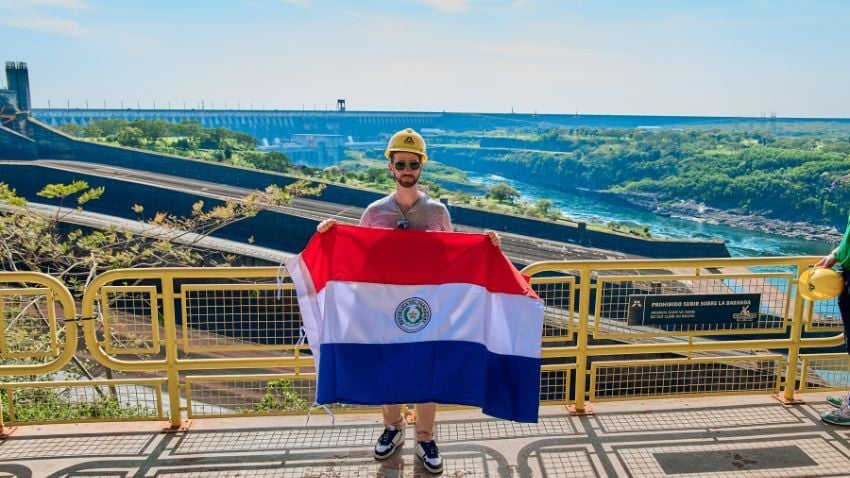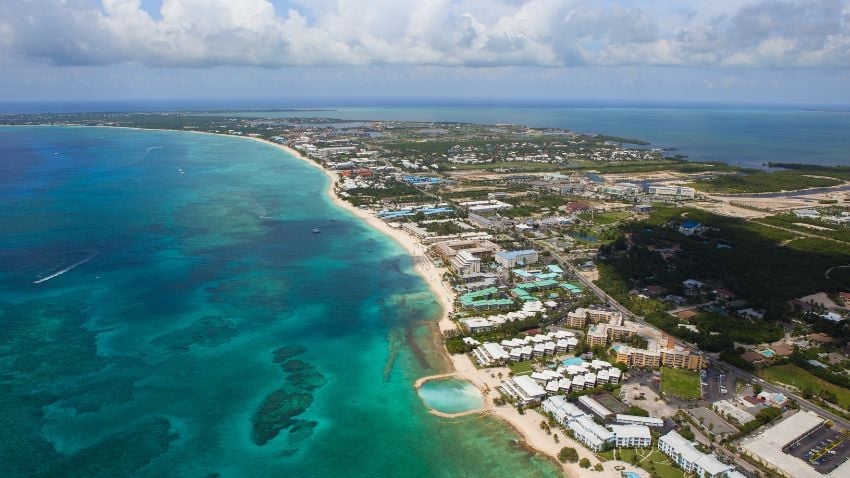Top Places To Raise Kids In Latin America
When you move abroad with children, you’re not just choosing a new country; you’re choosing the environment that will shape their future. Sunshine,...

7 min read
When you move abroad with children, you’re not just choosing a new country; you’re choosing the environment that will shape their future. Sunshine, beaches, and cultural experiences are wonderful, but they’re not enough. What matters is giving your kids freedom, safety, and opportunities that many families struggle to find in their home countries.
Before relocating to Panama with my family, I spent months researching countries and asking the difficult questions: Which places offer strong education? Reliable healthcare? Real stability? Clear residency options? A fair tax system? The deeper I went, the more I realized how quickly these questions multiply when you’re responsible for raising children abroad.
Latin America consistently stood out. It’s not perfect, but it checks boxes that many other regions don’t. Still, every family has its own needs, and the countries I highlight here are not universal recommendations — they are examples of destinations where families can thrive according to their values and long-term goals.
This article breaks down what you must consider before moving abroad with kids and presents the top countries in Latin America where families can build a prosperous, secure, and meaningful life.

Before moving abroad with kids, check education, healthcare, residency, taxes, safety, and lifestyle to ensure stability, comfort, and better opportunities for your family
Before moving abroad with your kids, ensure that the country you choose meets the key basics I’ve outlined here:
Education: One of the first things to consider is the quality of education that will best support your kids. You need options, including international schools, online schooling, or even better, homeschooling.
Healthcare: High-quality and affordable private healthcare is usually the best option for expats. In most expat destinations, the cost of modern private hospitals with English-speaking staff and doctors trained at reputable institutions is just a fraction of what you’d pay in North America or Europe.
Residency and Citizenship: If you are making a life-changing decision, such as moving to another country, be sure that obtaining permanent residency is straightforward — ideally, with a path to citizenship. Without this, you’re just a long-term tourist waiting for the rules to change.
Tax Advantages: Tax planning must be a priority, regardless of your reasons to move to an expat destination. Many expat destinations offer significant tax advantages, such as low or zero income tax, no capital gains tax, and exemptions on foreign-sourced income.
Safety and Stability: You wouldn’t even look at a country if you thought it wasn’t safe for your kids. However, real safety goes far beyond petty crime. You also need to consider political and economic stability.
Lifestyle and Amenities: Relocating doesn’t mean you have to give up the comforts you’re used to. The country you’re moving to should provide not only the essentials but also make luxuries more accessible.
Uruguay generally ranks among the top Latin American destinations for quality of life, political stability, and its expat-friendly environment. Since it is a popular destination among expats, English is commonly spoken in daily life. However, learning Spanish can also help you a lot with your daily transactions.
International families are quite satisfied with Uruguay's diverse private school options, which offer bilingual or multilingual education following the global curriculum. Diplomas are also recognized worldwide.
The private healthcare system is excellent and mainly operates through mutualistas, private health insurance cooperatives that charge a small fee.
Uruguay offers one of the easiest residency paths in Latin America. Families can move from temporary to permanent residency within a few years, and citizenship is possible after three to five years if you can demonstrate real ties to the country.
Uruguay is consistently ranked as one of the safest and most stable countries in Latin America, with a stricter rule of law and low corruption. Handling formal procedures generally goes smoothly, whether you’re running a business or managing family matters. However, Uruguayan residents pay income tax on Uruguay-sourced income up to progressive rates topping at 36%. Capital gains are also taxed as income.

Brazil offers a diverse culture, strong private healthcare, good international schools, and welcoming expat life, though safety and taxes vary by region. Families can enjoy opportunities and community when choosing the right city
Brazil is the continental giant of South America, unmatched by any other Latin American country in terms of geography, population, and economy. Brazil’s multicultural society helps expat families fit in easily, though the quality of life varies widely across its vast regions. Since you can find many expat communities in most of the city centers, communication isn’t a big problem in Brazil for expats. Knowing some Portuguese can also be useful in daily communication. Although there are some downsides to living in Brazil, its advantages are far more impressive.
A wide range of private and international schools is available. Many of these schools offer globally recognized diplomas, with curricula in English, French, German, or IB. Homeschooling is not officially legalized across the country, and legal battles around it create uncertainty for families considering this option.
Healthcare isn’t a concern here because of the excellent private hospitals and clinics, offering international standards with affordable fees. My second child was born in Florianópolis, Brazil, so my family and I have experienced its private healthcare system firsthand and were amazed by the personalized care we received here.
Residency options in Brazil are also diverse. Permanent residency can also be granted on this basis, and naturalization is generally available after four years.
However, safety in Brazil varies widely by city and neighbourhood. Large urban centres face challenges with crime, and families must be selective in where they settle. Cities like Curitiba and Florianópolis are known for being safer and family-friendly.
The marginal income tax is set at 27.5%, lower than in European welfare states, but it can’t compete with other countries in Latin America that adopt the territorial tax regimes. Capital gains are also taxed as income at progressive rates up to 27.5%. However, property taxes are usually so low that it is easy to own real estate in Brazil.
Despite some of its downsides, Brazil is a country that’s very dear to my heart. In Brazil, with its cosmopolitan social life, you just blend in as an international family and embrace a great life full of opportunities.
Costa Rica has one of the region’s strongest democratic traditions, a neutral foreign policy, and no standing army. As a tourist destination, English is widely spoken in daily life, particularly in city centers. However, some Spanish practice will make your daily life easier.
Families will find a range of high-quality international and bilingual private schools in San José and nearby suburbs. Many diplomas are widely accepted abroad. Homeschooling is legal in Costa Rica, but the Ministry of Education does not make it easy for families who choose that path.
The growing private healthcare sector provides modern clinics and hospitals. Most expat families rely on private healthcare, with monthly insurance costs that are significantly cheaper than in North America.
Territorial tax regimes in Costa Rica also make this beautiful country more appealing to expats with a foreign steady income. For Costa Rica-sourced income, a progressive income tax rate up to 25% is applied. There is also a flat 15% capital gains tax rate in the country, which isn’t favourable compared to many other great options in the region.
Residency options are also well established, with pathways such as the Rentista Visa for those with guaranteed income, or the Investor Visa for property and business investments. While naturalization is possible, it requires seven years of residence.
Costa Rica is generally a safe place to raise your kids, but in bigger cities like San José, you’ll still need to take basic precautions against petty crime. The country ranks high in rule of law indices, thanks to its stable democracy and well-established political institutions.

Paraguay offers simple residency, low taxes, affordable living, and a growing expat community. With legal homeschooling and improving private healthcare, it’s a top choice for families seeking space and opportunity
Paraguay is maybe South America’s most underrated destination, but a rising star for international families for many reasons. It consistently reforms its political and economic systems, building a modern state open to the world on a strong foundation. There is also a growing expat community in the country, and English is commonly used among the middle class in the big cities.
Although families will find fewer international or bilingual private schools compared to Uruguay or Panama, several reputable institutions offer English or international programs, with diplomas recognized abroad. A major advantage is that homeschooling is legal and supported by a growing community.
Private healthcare is becoming common practice in Paraguay, with modern private clinics available mostly in Asuncion. Expat families generally opt for private insurance since high-quality healthcare service comes at a low cost compared to the U.S.
Paraguay’s residency programs are the most straightforward and welcoming in all of Latin America. There is no minimum investment requirement to apply for temporary residency, which is valid for two years and can be converted to permanent residency afterward.
As a territorial tax regime, Paraguay is quite popular among expats looking for great opportunities in a rapidly developing country. It also doesn’t impose wealth, inheritance, or gift taxes, and capital gains tax is integrated into the personal income tax system, with local asset gains taxed. Marginal income tax on Paraguay-sourced gains is 10%, which is still competitive compared to many other countries.
Although Paraguay is a developing country, many big cities offer affordable housing, spacious neighbourhoods, and a relaxed lifestyle. For families seeking affordable living, ample space, and straightforward residency, Paraguay is a no-brainer choice.
At the very top of the list is Panama. I’ve been living in this incredible country for over five years, and not a single day goes by that I’m not grateful for my decision to move here.
Panama holds an exceptional place in Latin America due to its geopolitical importance, notably through the famous Panama Canal. It offers the best in the world for expats, with business-friendly regulations, a territorial tax regime, and gorgeous, diverse nature and welcoming communities. The expat community in Panama is great, and speaking English is rarely an obstacle here. However, I practice my Spanish whenever I get the chance.
The advantages of Panama are not limited to these. Families can choose from a wide variety of private schools, particularly in Panama City. Many of these institutions offer bilingual or international curricula (American, British, or IB), which are globally recognized. The best part of education in Panama is that homeschooling is permitted and supported by communities. You can also opt for online education with diversified curricula.
Panama offers peace of mind regarding your health. Private hospitals in the capital provide modern facilities and English-speaking staff. Doctors’ visits are very affordable.
Residency programs are also highly advantageous. The Friendly Nations Visa is among the most popular and allows provisional residency for two years, after which applicants may apply for permanent status. For higher net-worth individuals, the Qualified Investors Visa offers a path to residency if you invest in real estate, securities, or make a large bank deposit. There’s also a Pensionado Visa, geared toward those with a stable pension or guaranteed income stream.
In terms of safety, Panama is certainly a good place to raise your family. I am married with four kids and have been living in Panama for more than five years. My kids are growing up happy and are physically and spiritually healthy. As is common in urban settings, petty crime occurs in certain districts of Panama City, so it’s important to take the usual precautions.
Panama is ideal for families seeking tropical living without giving up modern infrastructure and top amenities. Within a few hours, you can reach Pacific and Caribbean beaches or mountain towns like Boquete, turning weekends into unforgettable experiences. Panama’s well-established international expat communities make it easy for families to feel at home.

Raising a family abroad means choosing the freedom, stability, and opportunities that matter most. Latin America stands out with affordable living, family-focused culture, and easy residency, places where families can truly thrive
Raising a family abroad is about finding freedom, stability, and opportunity for your children and for generations to come. No country is perfect, and each comes with trade-offs, but the right decision depends on which boxes you refuse to compromise on: education, healthcare, residency, safety, tax regime, lifestyle, or freedom.
Some countries in Latin America tend to come out ahead because they combine affordable living, family-centred culture, and relatively simple residency options. These nations offer a chance to establish lasting roots, often with a path to permanent residency and even citizenship.
Whatever your preferences or family values, there are fantastic countries in the world where your family can thrive. To explore your options, download our free special report on Plan-B Residencies & Instant Citizenships.
If you want the best intel from the expat world, including profitable offshore opportunities, little-known tax-saving strategies, and hard-won insights on immigration, passports, and Plan-B residencies, all delivered to your inbox every single week, then join our daily correspondence, EMS Pulse®. Currently enjoyed by over 84,000 expats and expat-hopefuls worldwide. Fill in the form below to join our newsletter free:

Written by Mikkel Thorup
Mikkel Thorup is the world’s most sought-after expat consultant. He focuses on helping high-net-worth private clients to legally mitigate tax liabilities, obtain a second residency and citizenship, and assemble a portfolio of foreign investments including international real estate, timber plantations, agricultural land and other hard-money tangible assets. Mikkel is the Founder and CEO at Expat Money®, a private consulting firm started in 2017. He hosts the popular weekly podcast, the Expat Money Show, and wrote the definitive #1-Best Selling book Expat Secrets - How To Pay Zero Taxes, Live Overseas And Make Giant Piles Of Money, and his second book: Expats Guide On Moving To Mexico.

When you move abroad with children, you’re not just choosing a new country; you’re choosing the environment that will shape their future. Sunshine,...

The Caribbean is a complex region comprising more than 7,000 islands, islets, and bays. The main island groups are the Greater Antilles, the Lesser...

One of the things people are most curious about is how I decided to live outside my home country, Canada. I am not surprised by this question. Most...